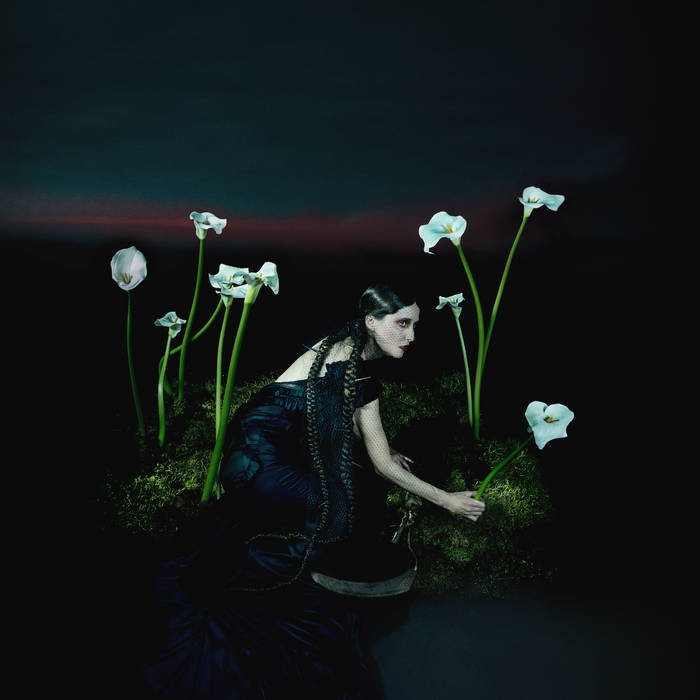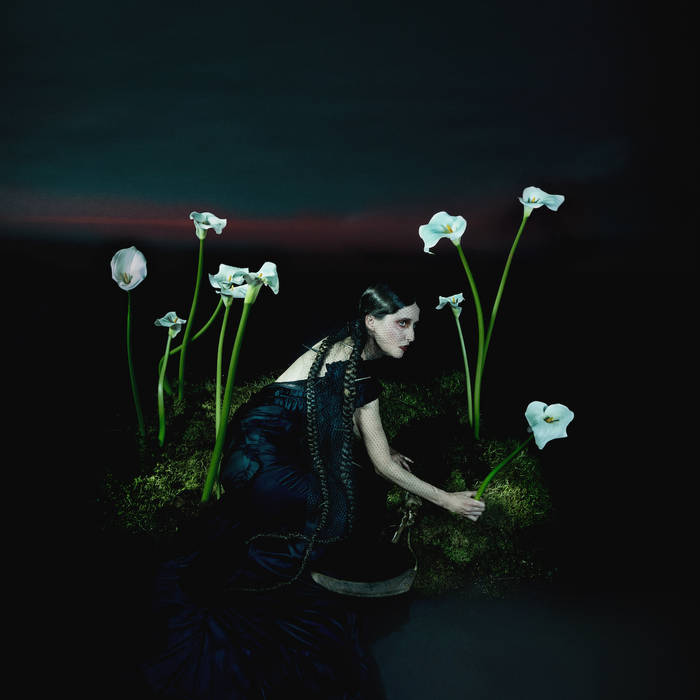Gaudi - Theremin Homage to The Smiths
In the bubble of time, sudden sparks often arrive to illuminate miracles.
Music lends itself to creating part of this emotional stage with instruments that go from the ordinary to the extraordinary.
The Theremin is the only one that does not need to be touched, but this does not prevent it from taking the soul and elevating it to a dimension capable of shaking.
Just like The Smiths, a sword full of mysterious dust, in continuous repose with perfection, and which finds love and devotion on the part of the Italian musician but who has been living in London for decades once again (the second, though one hopes there will be twenty more...) in the desire to pay homage to this band and bring it into a space, the only one, in which to excel: the solitude of a homage is the precise dimension where the Manchester band can establish contact with eternity.
After the approach that had delivered us five gems, here he is back with a quatern of continuous and painful obsession: there is no happiness on the Smithsian planet, but a sweet, long line of mental tombstones that can provoke sobs and moans. The Theremin is the only instrument that can give Morrissey's voice that depth that cannot be compared, given the absence of singing. In this preamble, Gaudi plays the card of measured experimentation, not wanting to affect the original versions and instead inserting particles of tiny caresses in order to manifest love with a fine, light, respectful touch that is nonetheless skilful in delving into the secrets of pieces that still seem to yearn to not reveal themselves totally.
A cry (the listening), an eternal kiss the continuous play, and the thorn in the side travels in the songs chosen by the Bolognese artist to disinfect the wound on one side and to create new furrows of suffering on the other.
Here is astonishment and alienation, history and images find a new direction: not only the theremin, but also the other instruments come down from their usual zone and bow down, declaring their obstinate propensity for sound care, for a homage that marks in manifest will the distance from a cover. And they all succeed, sowing emotion and allowing the beauty of these poignant approaches to become, suddenly, new poems on Manchester sky...
One finds oneself in a huge hall, inside one's own thoughts, with poetic lanes to raise the beats, to touch miracles and make tears kneel: this homage is a smile from the sky on a rainy day, and the 1980s, so pregnant with rubbish and mediocrity, have found with the Mancunian group a revenge, a question and an answer that travels in silence. What happens is that those songs here retain a sound stuffed with dust and thorns, to scatter fears and direct them as new opportunities.
Mr Lev Sergeevic Termen has found a way to give the instrument the possibility of becoming a vision, a sound film not forced to touch but to become a jolt that, starting from the temples, quickly reaches the heart and, without a doubt, those are the territories of the Smithsian planet.
There are electromagnetic fields even in a thank you, in a homage that makes the past shine inside the bubble I mentioned at the beginning. The details come out shy, almost hidden, yet never stuttering: Gaudi's respect is a powerful tidal wave that does not seek to glide over our territories but, rather, wants to define a private space that can have a unique access.
Obstacles create a patina of challenge that Gaudi brings to rest with the careful study of dynamics, harmonisation, all, of course, mixed with a devotion that becomes a complex floral zone of the soul.
The project also consists of a special dedication: recognising the importance of Andy Rourke who tragically took his bass guitar to walk the heavenly paths.
Moreover: the tribute comes out on 14 May, forty years after the Smiths' only Italian concert, which saw the Italian artist in the front row immersed in the joy that is still unscratched
Time becomes a bridge made of books, of walks, of descents into the refined desolation of the choice of an almost obligatory solitude to cleanse, in places, one's own existence.
Nine defeats, nine rebellions, nine instances within the rooms of the chest, to make the infinite a daily resource.
Morrissey's voice, with the Theremin, becomes a more musically polite stream, closer to perfection, and the real outrageous act is that, when the instrument decides to make only partial reference, a truly astonishing interpretative lane opens up.
The primitive state of emotion is reached, the disturbance appearing as therapy and escape, to create emotional craters capable of protecting enchantment and miracle.
Breathlessness in search of a light, aggression that finds ecstasy, and the voice of a divinity ends up in Gaudi's sensual and precise movements, to hurl helplessness into the basin of ultimate wholeness.
Remaining breathless leads us to a conscious coma, the most lethal of all, without however taking away the vision of a world, the Smithsian one, still able, more than forty years later, to unleash originality and magnificence: to be a precise and capable homage, the study was not only on the songs but on the history of this band, the only one that pushed the man Gaudi to begin his artistic existence
Let us delve and lose ourselves for good in the melancholy that makes us perfect ...
Song by Song
1 - Last Night I Dreamt That Somebody Loved Me
First rose.
The fog descends, the flight of the seagulls is filled with bitter liquids in the eyes and the devastating piano welcomes the Theremin that, as we note and notice from the beginning, also participates in the musical part. And it is undeniable that this delicate antenna breaks our breath and brings us the same tears as those birds. It is heartbreaking, the child of a free-falling abyss. Gaudi, supported by sublime gift companions, gives the song all the meaning while Morrissey cries with us...
2 - Please, Please, Let Me Get What I Want
Second rose.
Where everything seems to lighten up because of Johnny Marr's incredible talent, Gaudi enriches the sinuosity of this rose with small, almost veiled arrangements. The Theremin gives us Morrissey's voice, without vocal cords but with veins full of blood, walking on the dew of a desire that wants to be fulfilled. The oscillations are simply emotional states in fervid exhibition.
3 - I Started Something I Couldn't Finish
Third rose.
The sound of the guitar, the impetus of the bass, the robust fall of the guitar precede the flying notes of a handless voice, to fix a sequence of chords that makes melancholy a smile that fights, nimbly, the awareness of the inconclusiveness of existence...
One remains almost totally faithful to the original, but with the distinct sensation of a palette of colours that fix ancient history with the new sonic propensity of the present...
4 - I Know It’s Over
Fourth rose.
With this gift, the queen of marginalisation, of incomprehension, of the fiercest solitude, becomes a wave that rises into the sky, a devastating whirlwind. Gaudi has grasped its depth, has by no means diminished its intensity and grants us the beauty of an embrace wet with pain and petals in free fall. The Theremin, which replaces Morrissey's vocals, uses the beating of the wings of those drops in flight to stop our hearts...
5 - Shoplifters Of The World Unite
Fifth rose.
Here come the novelties, condensed but not compressed, nimble wings on a layering that operates in a refined context and moves to probe the soul of a song that saw the Manchester quartet's structural framework change. Marr's skill here finds a different power, while Morrissey's singing becomes sly and allusive. The Theremin visits the concept of the song and the musicians show character in making the chord succession more lucid. The attack is a liturgy, a bow in which the bass and violin challenge the guitar, while the driving instrument takes us into the vocal chords of an intuition that sequesters truth...
6 - Well I Wonder
Sixth rose.
Please bring oxygen and the courage to live: Well I Wonder, in the hands of Theremin, is a portable heart attack which crosses the body to paralyse it. It is no longer an antenna, no longer Gaudi's palms and fingers that translate but make real our struggle with the air that abandons us, shatters us, shows us the way out of this existence.
The talent here becomes uncontrollable and these sound waves go beyond human comprehension: they dilate the steps and it is impossible not to remember this rose that, as we walk, buries our strength since the knees buckle.
And the final act of what we are is listening to a flower which was born on 20 May 1982 and that forty years later is still alive, because its light will never go out…
7 - Girlfriend In A Coma
Seventh rose.
The apparent lightness of sound contrasts with the lyrics, in a murderous bond that terrifies and isolates. Gaudi offers a visionary plan of the song by landing the whole thing in the classical arrangement, where it has always been, but the then modernity of the Smiths did not allow a glimpse of the complexity of the contrasts. The interplay of the strings becomes the perfect strategy to convey, in fullness and fluency, the tragedy of this sublime story…
8 - Asleep
Eighth rose.
The lump in the throat buries any attempt to achieve happiness: Gaudi puts forty years of devotion between his fingers and all this leads us into the night dust of nervous and selfish blinks. The Smiths' song here enhances the lyrics and makes the music a merino wool blanket, careful not to let us feel temperature changes in a heart busy trembling.
9 - What Difference Does It Makes
Ninth rose.
The perfect position of what must not be smudged is always the last track. Here the Bolognese artist surpasses himself, yielding to the courtship of the guitars, to an intriguing and ancient melody, placing the surprise of slightly touching the song's structural framework, giving the Theremin the freedom to carry Morrissey's singing into the angelic space of a despair that can get lost in the clouds. The high register overcomes the falsetto and falls into that whitish cotton in the corridors of the sky to make this splendid song the testament, the colourful fresco of a tribute that here finds the unique and necessary space in which to display both the band's and Gaudi's qualities, to testify to the collectivity of artistic making.
The farewell is a shot: between arpeggios, rolls and whiplash, the delirium comes to establish what really makes the difference…
Alex Dematteis
Musicshockworld
Salford
13th May 2025
https://lnk.to/homagethesmiths
From midnight the links will be active, for pre-saving (Spotify and Apple Music), and for downloading on Bandcamp
















